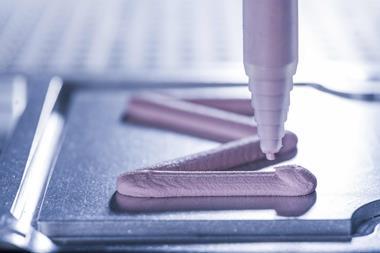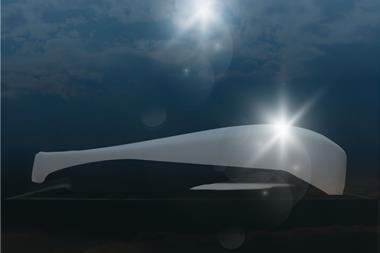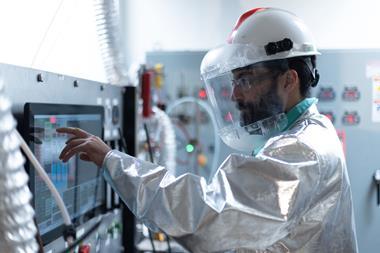 UK – Designed for high-volume production of composites, the upstroke short-stroke press has a press force of 36,000kN and a clamping surface of 3.6 x 2.4 metres. The machinery has been installed at the National Composites Centre (NCC) owned by the University of Bristol.
UK – Designed for high-volume production of composites, the upstroke short-stroke press has a press force of 36,000kN and a clamping surface of 3.6 x 2.4 metres. The machinery has been installed at the National Composites Centre (NCC) owned by the University of Bristol.
“We have installed the world’s largest openly accessible high-rate manufacturing press for composites,” commented Tom Hitchings, NCC business development director. “This is aimed at supporting sectors such as automotive, where developing high-rate, low-cost manufacture of composite components is critical. This press is producing parts within less than five minutes.”
The NCC is using the high-pressure resin transfer moulding process (HP-RTM), in which carbon fibre fabrics are placed in a die, filled with resin and hardened by applying heat and the pressure of the press. The method enables short cycle times for complex parts with strict geometric and rigidity specifications, while delivering consistently high part and surface quality. With HP-RTM, there are few voids – resin-free vacuum pores or gaps within the part or along its edges.
Schuler says the advantages of the short-stroke press compared with downstroke designs are the high closing speeds of 1,000mm/s, the shorter pressure build-up times of under 0.3s and a signficantly lower construction height.
“Our open-access model provides a flexible approach to enable working with companies of all sizes – from SMEs to tier ones and large OEMs,” said Hitchings. “With the addition of the new Schuler press, the NCC becomes a catalyst for real change in the industry.”


































